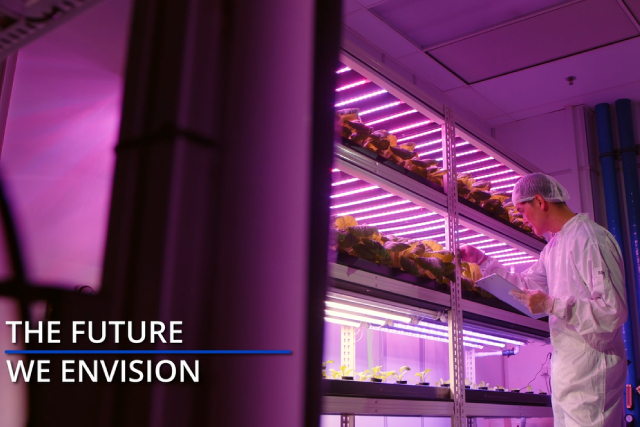
27 May Questions To Ask Yourself Before Starting A Hydroponics Setup
Starting a hydroponics setup at home can be incredibly rewarding, but it’s definitely not something you can treat as a short-lived weekend hobby. Unlike a potted plant that might survive a little neglect, a hydroponic system requires ongoing attention, consistent care, and the willingness to learn new things. It’s a project that needs commitment from the start, and walking away from it halfway might mean a lot of wasted resources, time, and money.
Before jumping into this soilless gardening adventure, take a moment to ask yourself some honest questions. By being real with yourself from the beginning, you’re more likely to set yourself up for success. So, here are some essential questions to consider before setting up your first hydroponic system in Singapore.
1. Do I have the time to maintain it regularly?
Hydroponics doesn’t mean “no maintenance.” It just means “different maintenance.” While you won’t be weeding or dealing with messy soil, you will need to check nutrient levels, monitor water quality, manage pests, and clean your system regularly to avoid algae or mould build-up. If you’re planning to travel often or have a schedule that’s packed to the brim, ask yourself if you’ll be able to carve out time each week – or even each day – to check in on your plants.
Some systems are more automated than others, and timers and sensors can help with daily routines. But even so, human observation is key. After all, plants are living things. They don’t just grow on their own, even with technology on your side.
2. Do I have a suitable space at home?
It’s tempting to think you can stick a hydroponic unit anywhere in your flat or balcony, but it’s a little more involved than that. Plants still need adequate light, ventilation, and space to grow properly. Some setups might be compact, while others require a larger footprint, especially if you’re hoping to grow a variety of crops.
Do you have space near a power source? Is the area well-ventilated and protected from extreme heat or rain? Will humidity levels increase and affect other parts of your home? These are all factors to consider. You’ll also need to ensure you can balance light and dark cycles in hydroponics, particularly if you’re using grow lights indoors.
3. What is my goal with hydroponics?
Are you hoping to grow herbs for cooking, leafy greens for salads, or perhaps even strawberries? Maybe you want to teach your kids about where food comes from or simply try something new. Understanding your personal goals will help determine the type of system you need and how much you’re willing to invest.
A small NFT (Nutrient Film Technique) system might be perfect for herbs, while deeper systems like DWC (Deep Water Culture) or flood-and-drain setups might suit larger or fruit-bearing plants. If you’re serious about growing most of your household greens, your system will need to reflect that from the start.
4. Am I ready to learn the science behind it?
Hydroponics isn’t just plug-and-play. You’ll need to understand how nutrient solutions work, how pH and EC (electrical conductivity) affect your plants, and how to troubleshoot problems like nutrient deficiencies, root rot, or fungal growth. Fortunately, there are tons of resources, forums, and even local communities in Singapore where hobbyists share their successes and mistakes.
That said, you need to be willing to learn and keep learning. Some problems don’t have quick fixes. Trial and error is part of the journey. If you’re someone who enjoys tinkering, experimenting, and tweaking things to improve them, you’ll likely find hydroponics satisfying.
5. What is my budget, both upfront and ongoing?
It’s easy to get excited and splurge on a sleek hydroponic tower or smart garden, but don’t forget to factor in the ongoing costs. Nutrients, pH adjusters, seeds, replacement parts, electricity (especially if using grow lights), and water bills all add up. Some systems require pumps or air stones that need regular replacement. And like any piece of tech, sensors or timers can fail over time.
Be realistic about what you can afford, not just to start but to sustain the system. There’s no shame in starting small. A basic DIY setup can teach you the ropes without draining your wallet. Once you’ve built confidence, you can scale up bit by bit.
6. Do I have the patience for trial and error?
No matter how carefully you plan, things might not go perfectly the first time. Your basil may bolt, your lettuce might turn bitter, or your water pump might give out at the worst possible time. Part of the beauty (and frustration) of hydroponics is learning to respond when things go wrong.
Ask yourself if you can be patient with failure and willing to try again. If you see every mistake as a learning opportunity, you’re in the right mindset for hydroponics. But if you expect instant results and low effort, this might not be the right path just yet.
Conclusion
Hydroponics is a thoughtful way to grow food sustainably and learn more about plant science. But before you buy your first set of equipment or build your home setup, it’s worth slowing down and reflecting on what you really want to achieve. Are you ready for the commitment? Do you have the space, budget, and time? And most importantly, are you excited to learn?
If your answer is yes, then you’re already halfway there. The rest is a rewarding journey of growth for both you and your plants.
Ready to take the next step? Vicplas offers a comprehensive range of quality products that are sustainable and safe for agricultural use, perfect for building your hydroponic system with confidence and peace of mind. Contact us today for more information!
